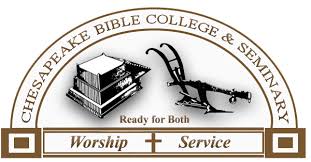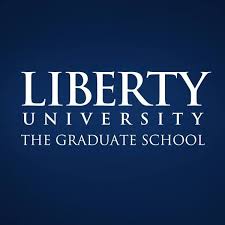In recent years, quite a number of pastoral counseling programs have increasingly adopted the online educational format. Most schools allow for a flexible hybrid arrangement to cater to the busy schedule of students engaged in pastoral work.
Meanwhile, there are also many programs out that enable students to earn their pastoral counseling degree without having to attend conventional university.
For a religious person, the pastor or priest is considered part of the family who can provide psychological and spiritual support to communities. These ministers become more effective evangelists through the Doctor of Pastoral Counseling (D.PC) program.
Best Online Schools for Doctor of Pastoral Counseling Degree Programs
Atlantic Coast College of the Bible Theological Seminary

Graduate School of Religion and Theological Seminary – Doctoral of Pastoral Counseling
Location: Daytona Beach, Florida
Atlantic Coast conducts lessons for New and Old Testament classes through online audio lecture modules. Core courses include:
- Christian Counseling
- Counseling Ethics
- Healthcare Counseling
- Counseling Persons in Grief
You have to then choose four electives from seven available, which include:
- Counseling for Women’s Issues
- Prison Ministry
- Marriage Counseling
- Advance Christian Counseling
- Comparative Analysis of Human Psychology
- Biblical Counseling for the Dying
- Counseling Women with Guilt and Anxiety
Keep in mind that some courses require textbooks.
Learn More about Atlantic Coast’s D.PC Online Program
Neumann University

Ph.D. in Counselor Education and Supervision with Spiritual and Pastoral Integration
Location: Aston, Pennsylvania
Neumann University adopts a more traditional format wherein students are required to visit the campus one weekend per month. To be more exact, the D.PC degree program is mainly offered online with one on-campus weekend per month on Friday night 5-9 p.m. and Saturday all day. In addition, Neumann University trains aspirants who are interested in Catholic pastoral counseling.
The program is 54 to 60 credits depending on the dissertation time with a Fall start time.
Learn more about Neumann University’s hybrid Ph.D. in Counselor Education and Supervision Degree Program
The following schools award the “Doctor of Clinical Pastoral Counseling (DCPC)” in lieu of D.PC:
Chesapeake Bible College and Seminary

Online Doctor of Clinical Pastoral Counseling (D.C.P.C.)
Location: Ridgely, Maryland
CBCS is an accredited school that offers online course offerings in Clinical Pastoral Counseling through its Christian Counseling Programs. They are also a member of the National Christian Counselors Association. Pastoral counselors are required to pray, share their faith, read from the Holy Scriptures, etc.
As a licensure candidate, the student will learn the Arno Profile System (APS) for counseling. APS is a counseling technique that is widely used by professional counselors, lay counselors and pastors all over the country, as well as nine foreign countries.
Learn More About Chesapeake Bible College and Seminary’s Online Doctor of Clinical Pastoral Counseling Degree Program
Washington University of Virginia

Doctor of Clinical Pastoral Counseling
Location: Annandale, Virginia
WUV offers a fully accredited DCPC program states that some of the classes are taught in Korean and would advise you not to register for those classes. According to the program’s webpage, the doctorate degree consists of 42 semester credits beyond the master’s degree, 8-semester credits of internship, a candidacy examination, and a quantitative or qualitative dissertation.
Learn More About Washington University of Virginia’s Doctor of Clinical Pastoral Counseling (DCPC)
Liberty University Online

Online Doctor of Ministry (D.Min.)
Location: Lynchburg, Virginia
Liberty University Online offers a similar track, the Doctor of Ministry (D.Min.) degree, which students can attend online entirely. Thirty (30) credit hours are needed to complete the practice-focused program which is accredited by the Commission on Accrediting of the Association of Theological Schools (ATS). Liberty also offers a Military Tuition Discount.
Learn More About Liberty University’s FULLY ONLINE Doctor of Ministry Degree Program
Are you called to serve your religious community through pastoral counseling? Enroll in a D.PC. Program.
Frequently Asked Questions
What does a pastoral counselor do?
It is a pastoral counselor’s calling to help persons having troubles with substance abuse, marital life, loss of loved ones, or other social issues move forward with their lives. Pastoral counselors provide psychological and spiritual guidance and teach people to overcome their struggles in life through prayers and spiritual direction coupled with sessions on coping mechanisms.
Faithful individuals, Christians in particular, who can become emotionally unstable because of the challenges they face believe that pastoral counselors can aid them in maintaining proper dispositions and coming up with sound decisions. For them, the services of pastoral counselors provide the answer to the many questions they encounter at life’s crossroads.
When the faithful are in a quandary and need to make life-changing decisions, they seek guidance from the pastor. Specific situations that may require pastoral counseling and insight or intervention of pastoral counselors include abortion and, in many cases, annulment. It is worth mentioning that a pastoral counselor might fundamentally lean toward saving marriages but they may advise against it in cases of relationships that bring damage to both parties.
In several cases, pastoral counselors simply lend a listening ear without prejudice. They are not equipped to offer psychological help for various mental health issues such as depression or suicide, and spiritually oriented support.
How do I earn my D.PC degree?
If you have a master’s degree in a counseling field (psychology, social work, etc.), you may enroll in a D.PC or Ph.D. in Pastoral Counseling program. Some schools require competent Miller Analogy Test (MAT) scores. You also need at least three letters of recommendation to be submitted to the graduate committee.
A doctoral program in pastoral counseling might take about five to six years, with the dissertation as the final requirement. During this time, students receive rigorous training in spiritual and religious counseling.
The principles of clinical counseling serve as the foundation of D.PC coursework. Here, students will be exposed to classroom seminars and practical training in counsel work. They will learn research methods for identifying cognitive behavior and applying theological insights that may lead what they consider as “troubled souls” toward the right path.
D.PC programs typically encompass the following fields: consultation theory and practice, family systems, humanism, spiritual themes in counseling, psychospiritual issues, and more. This graduate program is highly recommended for Christian pastors and church leaders.
What type of degree do I need to pursue research or educate others in Pastoral Counseling?
Anyone who has a doctorate degree in Pastoral Counseling, Theology, or even Psychology can teach D.PC graduate schools. The faculty line of D.PC institutions is composed of ministers (pastors and clergymen), psychologists, and scholars with a background in social sciences.
Research in Pastoral Counseling is compatible with several academic platforms, especially in scientific journals related to social science and religious studies. Outside the academia, D.PC. graduates spread awareness of pastoral care through seminars and liturgical celebrations.
How do I earn a transitional or bridge D.PC degree?
The D.PC degree has quite an unusual online presence, but most schools offer a hybrid educational program wherein students can study at their own pace. Most of them consider the student’s schedules and conduct classes on weekends. Some schools award alternative degrees in an online-dominated format. Check out our list of recommended schools and find out what is best for you.
What sort of accreditation should I look for in a school?
The American Association of Pastoral Counselors (AAPC) may no longer directly providing provide accreditation for D.PC. Programs, but an affiliation with AAPC gives strong merits to the institution.
Other essential accreditation bodies include the following Christian organizations: the Association of Theological Schools (ATS), the Evangelical Council for Financial Accountability (ECFA), and the Association for Biblical Higher Education (ABHE).
Some institutions award the “Doctor of Clinical Pastoral Counseling (D.CPC)” in lieu of the D.PC. Degree. In this case, accreditation from the Accreditation Council for Pharmacy Education (ACPE) is necessary.
What kind of career and salary can I expect with my D.PC degree?
D.PC graduates have extensive career options. They can work in churches, rehabilitation centers, correction facilities, charitable groups, non-government organizations (NGOs), and even in clinical settings. Earnings depend on where they work and who facilitates pastoral counseling.
According to the Bureau of Labor Statistics, pastoral counselors earn around $49,770 a year. If they specialize in family therapy, their annual median income is a bit higher at $56,530. This revenue only includes the figures for the counseling occupation. Pastoral counselors earn more with their varying pastoral work and capabilities, and according to the community of faith, to which they belong.
Do I need a license to be a pastoral counselor?
In the US, the licensure requirements for pastoral counselor depends on the state. Some states demand certification from the American Association of Pastoral Counselors (AAPC) and the National Christian Counselors Association (NCCA). At the very least, the pastoral counselor must prove religious organization membership through a letter of endorsement from the authorities.
A pastoral counselor may opt to take the National Board for Certified Counselors’ National Counselor Examination (NCE) to earn the credentials needed for practice in the secular field.
Pastors who have earned a D.CPC degree instead of a D.PC. may need to take the National Clinical Mental Health Counselor Examination (NCMHCE). Both examinations require at least 375 hours of clinical experience and three years of active ministry that can be earned simultaneously in graduate school.
